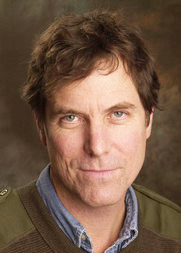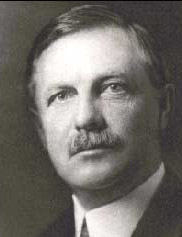Ethics
FraudWhen your kid is going out the door, heading for college, what words of advice do you give? How do you sum up in one phrase the wisdom of a lifetime; the ethos of an entire culture? One parent known to us, faced suddenly with this question (and most questions like this come up suddenly), put it this way:
Don't lie, don't cheat, don't steal
That could be worse. On reflection, it will be noted that it does not contain any recommendations about technique (Learn how to extract a square root), or about career (Cultivate the biggies), but only about personal integrity, as expressed in relations with other persons. That, properly considered, is where all the others, if they start at all, properly start. Lack of integrity has a general name. Which brings us to the Fraud Page.
The more common general term is Plagiarism, but fraud in the ethical sense includes more than what it is technically correct to call Plagiarism. We need a finer-grained analysis, for proper behavior toward the work of others. Here it is.
There are four ingredients in a published work of history (intending that term in its broadest sense): fact, interpretation, expression, and the professional persona of the author. All four need care from the ethical practitioner. Each has its characteristic forms of dishonesty. Plagiarism in the strict sense is dishonesty in matters of expression. The concept can be stretched to cover one or more of the other categories, but doing so can lead to confusion when judging cases. It may help to consider briefly all four categories.
1. Fact is not invented, but must be ascertained. If the author has ascertained facts by direct investigation, that investigation will be the substance of the work, and requires no citation. If established in an earlier work, including a work by the same author, that work should be cited. If archive data are used, the location and access information for the data should be given. If interviews, their date and the location of any transcripts. If objects, their provenance and present location. Needless to say, reference to nonexistent sources, and incorrect citation of facts, are fundamental violations of professional ethos. They are not plagiarism, They are fraud of the most blatant sort. A classic case is the forged document called the Donation of Constantine, masterfully exposed by Valla. But antiquity has no monopoly: recent cases are the Hitler Diaries, or the fraudulent gun ownership study of Michael Bellesiles.
There is a reasonable limit to the requirement to give sources for facts. We do not routinely cite the dictionary for the meanings of words, or the encyclopedia for commonly known dates (unless as a basis for challenging a commonly known date that happens to be wrong). There is a zone of public information. Above the level of that zone, and it can be a nuanced matter to establish it, the facts on which an argument rests are part of the argument, and a reader should be able to judge the argument by examining the facts. Citation of sources is how we make this possible. Citations may exasperate the general public, but that is the general public's (and the general publisher's) problem. We can reduce the exasperation by making the citations more graceful, but they must be there if the work claims historical value.
2. Interpretation is the effort of an individual working with the facts to get to the next level. Examples of interpretations built on agreed facts are Jaspers' Axial Age idea, Turner's Frontier Thesis (that is Turner in the picture above), Wittfogel's Oriental Despotism model, Sekino's Iron Age theory, Lachmann's Ur-Markus suggestion. Such contributions to the ongoing understanding of the past need to be properly credited (or discredited, but at any rate, acknowledged). Appropriation of the ideas of others is intellectual theft rather than plagiarism. But intellectual theft is still serious
Intellectual theft is very common in our world. It may take the form of a professor publishing his student's work as his own, or a professor mining the good ideas of a lower-ranking professor's dissertation, or a scholar appropriating the leading theses of a colleague's unpublished paper. The dissertation in particular, though at least in the US it is a published document (you can buy a copy from UMI), is by long but vicious precedent widely treated as unpublished, and thus as available for the taking. Misunderstandings arise when cultures meet and overlap, as witness the Courant/Robbins authorship dispute, which exposed a cultural difference rather than a dispute as to fact. But with due allowance for these frictions, intellectual theft is widespread on both sides of the Pond. It is the most sensitive crime in the intellectual world, including the scientific corner of the intellectual world. Due care is recommended, for those who seek good standing in that world.
3. Expression is an individual's way of putting fact and interpretation down on paper; it enters the realm of the artistic. It is also the most useful meaning of "plagiarism." Expression in this sense is protected by copyright law, and appropriation of the expression of an earlier writer is an actionable offense. An action becomes legally practical only if large sums of money are involved (and may be ill-advised even then, but we are here dealing with ideal behavior). Failure to give sources for facts, or credit for ideas, are sometimes lumped under "plagiarism," but that term is strictly most applicable to this third intellectual crime: the incorporation of other people's prose. Popular historians are increasingly disposed to blend into their own work whole stretches of the felicitously wrought work of previous writers. The exposures of Stephen Oates, Doris Kearns Goodwin, and Stephen Ambrose are recent examples. So are the classic dispute surrounding H G Wells (whose sensationally successful Outline of History was deeply, but silently, indebted to an earlier work by Florence Deeks of Toronto), and the more recent one concerning J K Rowling. These people go beyond "author" and enter the realm of "packager." But even packages need a bill of lading. A correct one.
4. Persona is the perceived reputation of the author, as contributing to the acceptance of his work. Hostile persons can malign the person of a scholar, as a way of discrediting his work. Or a scholar may misrepresent himself. Such personal misrepresentations as that of Joseph Ellis may confer unfair advantage in the tenure and promotion race, or on the lecture circuit. Even this kind of fraud, by one historian, tends to diminish the credibility of all historians, and persona fraud is thus a matter of valid professional concern. At the lower end, it takes the form of lying about credentials on a job application, which has become extremely common (the rate has recently been estimated at 40% of all job applications). Institutions have been slow to respond to this problem, and have treated credentials as a merely perfunctory matter. The most discouraging thing about l'Affaire Ellis is that the institutional censure of Ellis, such as it eventually was, occurred not on institutional initiative (there was no institutional initiative), but only under the pressure of continuing public outrage.
Recourse for the individual whose ideas or expressions have been appropriated, or for a readership which has been misled by false information or spurious repute, is unfortunately limited. The wry story of the fraud victim in Lyedz is sufficiently emblematic of the general position. In brief, there is no position. The only options are legal action, institutional complaint, and public exposure. The only options of which the offending parties are afraid are the first and third. The individual victim is rarely so situated as to be able to use any of them. At any rate, the viewer is now equipped to understand, and vicariously to enjoy:
Peter Charles Hoffer. Past Imperfect. Public Affairs 2004
It seems that, in the ethics department, the public as a mob is far ahead of the professionals as a guild. The auspice for professional history could scarcely be more dire.
To what he saved of the Mosaic Decalogue, in his reformed version of Judaism, which was half of it, Jesus added a new sixth commandment; one against fraud (see Mark 10:19). In this he was historically accurate, updating an ancient code where it needed to be updated so as to function effectively in the current world. (Between Moses' time and his own, Israel had passed out of the nomadic age and into the commercial age, and commerce begets fraud on a wide scale). As we have seen above, he was also prescient.
29 May 2004 / Contact The Project / Exit to History Page



